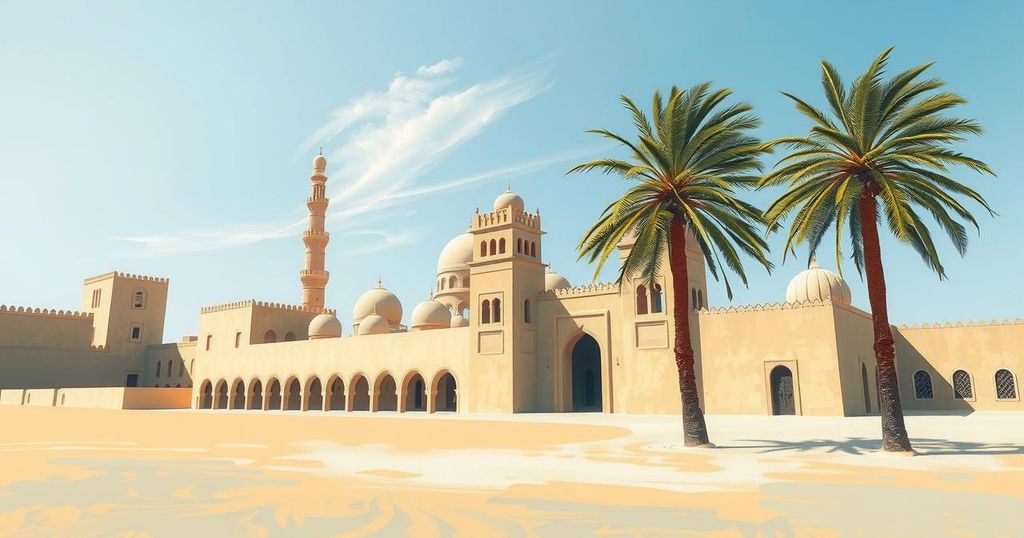Lebanon’s President Joseph Aoun’s visit to Saudi Arabia marks a significant potential shift in the nation’s diplomatic alliances, focusing on curbing Hezbollah’s influence, advocating for an Israeli withdrawal, and addressing urgent economic needs. The discussions emphasize the crucial role of Saudi investment for Lebanon’s infrastructure recovery while navigating the complexities of regional conflicts. Lebanon’s future hangs in balance as it seeks to redefine its partnerships amidst these challenges.
Lebanon’s Diplomatic Gamble: Aoun’s Saudi Visit and the Future of the Region
Lebanese President Joseph Aoun’s recent visit to Saudi Arabia signifies a potential realignment in Lebanon’s political alliances, particularly concerning Hezbollah’s influence, Israel’s military withdrawal, and Lebanon’s economic recovery. This visit, reflecting Saudi Arabia’s emerging diplomatic role in the region, is part of Aoun’s strategy to stabilize Lebanon amid regional tensions.
The significance of Aoun’s brief visit lies in the high-level discussions with Saudi leaders. Imad Harb, director of research and analysis at the Arab Center in Washington, emphasized the importance of Aoun meeting official leaders to discuss Lebanon’s pressing issues. The talks primarily addressed limiting Hezbollah’s political power and advocating for a full Israeli withdrawal from Lebanon, with Azzam Tomeh, a political analyst, noting that Aoun’s alliance with Saudi Arabia helps in navigating relations with other key players such as the U.S. and Iran.
Lebanon’s critical need for foreign investment to revitalize its infrastructure was a central topic of Aoun’s discussions in Riyadh. Harb pointed out that Saudi investments are vital for Lebanese reconstruction efforts, as many countries are hesitant to provide aid without assurances that funds would not directly support Hezbollah.
Hezbollah’s role and future in Lebanon remain crucial concerns. Although the Iranian-supported group continues to hold political sway, its influence appears to be diminishing. Harb remarked that while Hezbollah retains seats in parliament, they are “no longer the ones pulling the strings.” Simultaneously, Aoun is seeking Saudi support for exerting pressure on Israel to fully withdraw from Lebanese territory, despite the difficulties in achieving this goal.
The regional dynamics indicate that Arab perspectives toward Israel may be shifting. Tomeh noted that with Iran avoiding direct confrontation with Israel, the Palestinian issue is increasingly regarded as an Arab concern. Moreover, Harb highlighted Israel’s military activities in Lebanon, noting that it continues to operate independently even with some control asserted by the Lebanese army.
Lebanon’s entanglements in regional conflicts further complicate its situation. Harb indicated that Lebanon remains affected by various geopolitical issues, including the Syrian conflict and the Palestinian refugee crisis, which complicates its internal and external relations. Lebanon’s significant refugee population exacerbates its economic strain, complicating its recovery and stability.
Despite aspirations for neutrality, Lebanon finds itself vulnerable to external influences. Tomeh remarked on Turkey’s perspectives on Lebanon, which complicates the nation’s path toward stability, suggesting that neutrality does not equate to immunity from regional tensions.
In summary, Aoun’s diplomatic engagement with Saudi Arabia represents a critical effort to reshape Lebanon’s alliances while garnering support for addressing daunting economic challenges. Cautious optimism exists; Harb believes that effective governance and diplomacy could lead Lebanon out of its crises, while Tomeh warns of the complex realities that could arise depending on regional developments.
In conclusion, President Aoun’s diplomatic outreach to Saudi Arabia seeks to redefine Lebanon’s alliances in the face of significant regional challenges. While the visit holds promise for economic support and a reevaluation of Hezbollah’s influence, Lebanon’s future remains precarious amid ongoing external pressures and internal divisions. The effective management of these relationships is vital for Lebanon’s stability and recovery, indicating that the nation’s political survival hinges on adept navigation of its complex geopolitical landscape.
Original Source: themedialine.org




